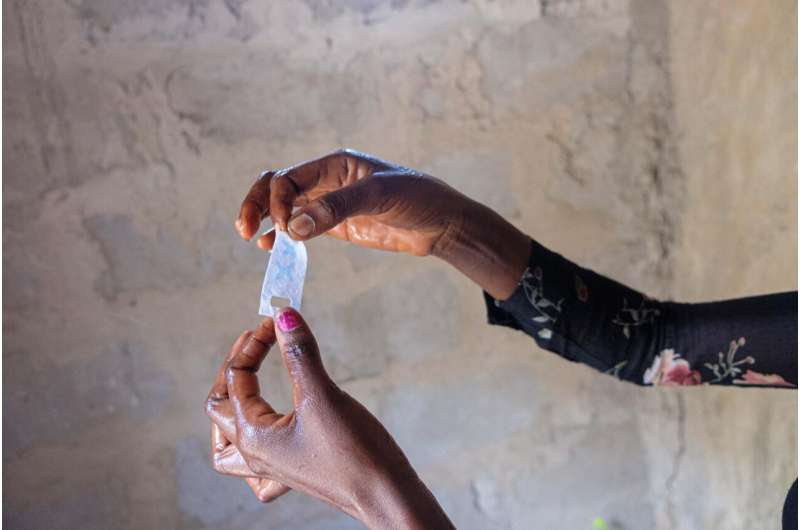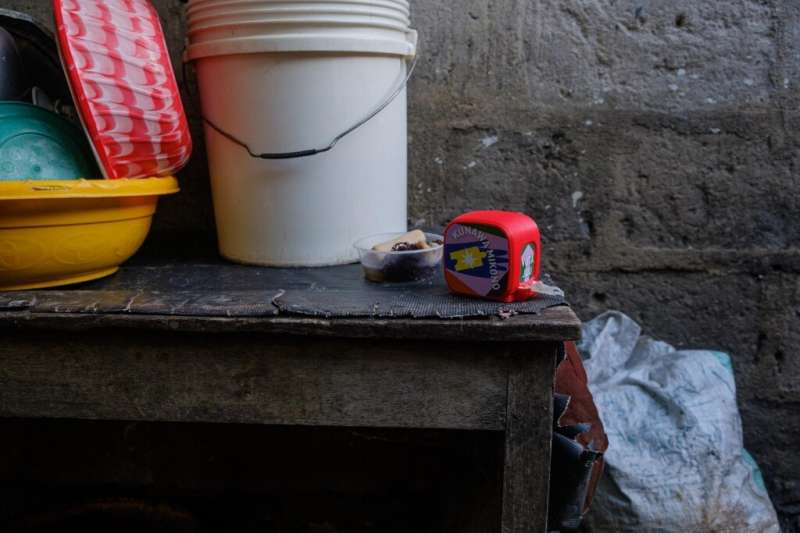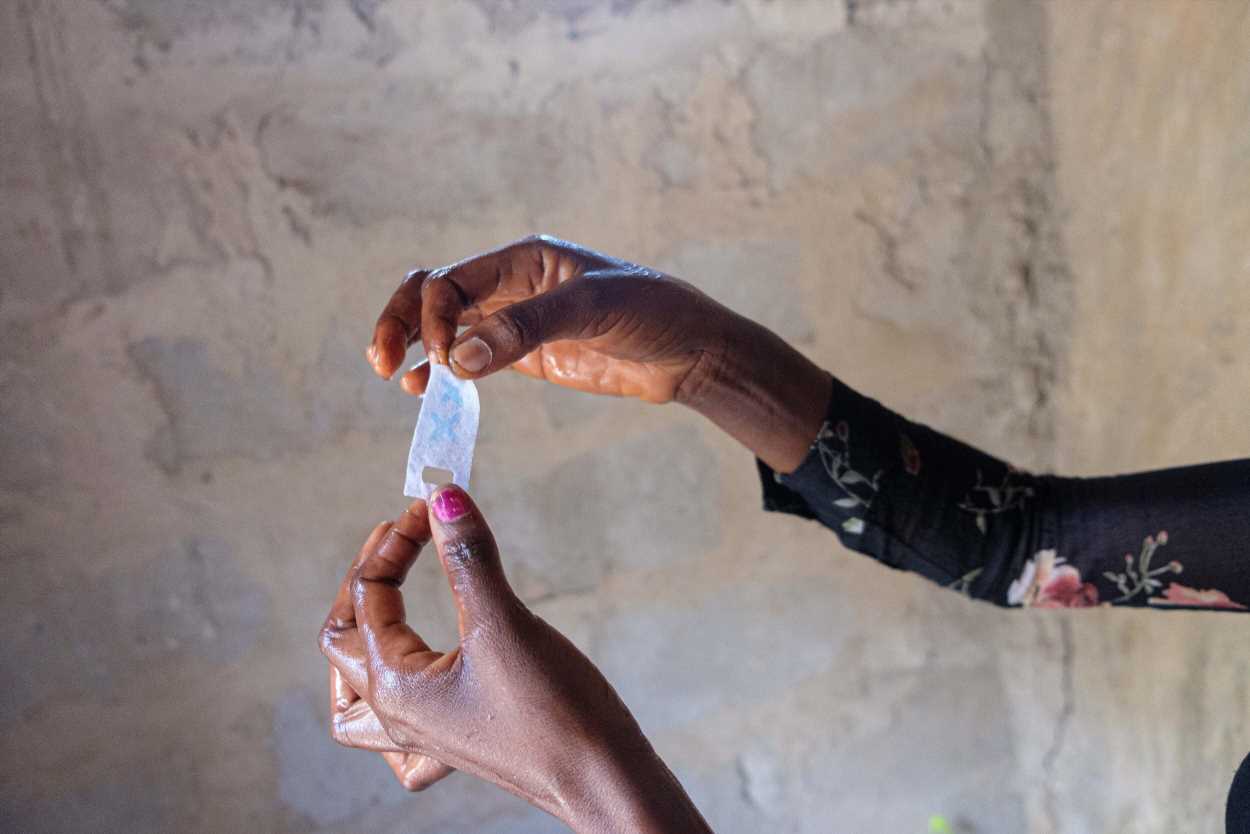
A team of design engineers and environmental hygienists from Imperial College London, the London School of Hygiene, Tropical Medicine and the University of Dar es Salaam has developed a dispensable soap tab system to increase handwashing in poor areas. In their study published by PLOS ONE, the group tested a variety of approaches to help poor people lacking indoor plumbing to wash their hands.
Prior research has shown that handwashing can reduce the spread of disease, particularly if it is done after a person defecates. Unfortunately, handwashing usually requires running water and soap (its purpose is to cling to bacteria, helping to wash it away during rinsing).
In places where there is no indoor plumbing, handwashing after defecation can be cumbersome. In this new effort, the research team sought to make handwashing easier in underdeveloped regions by developing a handwashing system that could be easily used under such conditions. They focused their efforts on people living in parts of Tanzania where very few people have indoor plumbing.
The team selected people living in separate towns to serve as assistants on the project. All assistants lived in houses with no indoor plumbing, obtained water by collecting it themselves or paying someone else to deliver it to them, and had at least one child over five and one under five living with them.
The team conducted interviews to learn more about barriers to handwashing. They talked with their assistants and also with soap makers. They found that people in underdeveloped areas wanted to wash their hands but found it difficult to do so—one of the biggest hurdles was fear of soap dispensers (or bars) harboring bacteria due to multiple people using them.

The researchers ultimately created five prototype dispensers, which were pared down to two main designs. One was a grater, the other was a biodegradable soap tab dispenser. The latter proved to be much more popular because it allowed placement near a toilet and hands-free dispensing. Users touched only the pull-off tab and water from a jug nearby. The research team concluded that tab soap dispensers could be easily mass produced and given or sold to people living without indoor plumbing to improve living conditions.
More information:
Edward Brial et al, Development of a novel hand cleansing product for low-income contexts: The case of tab soap, PLOS ONE (2023). DOI: 10.1371/journal.pone.0283741
Journal information:
PLoS ONE
Source: Read Full Article
